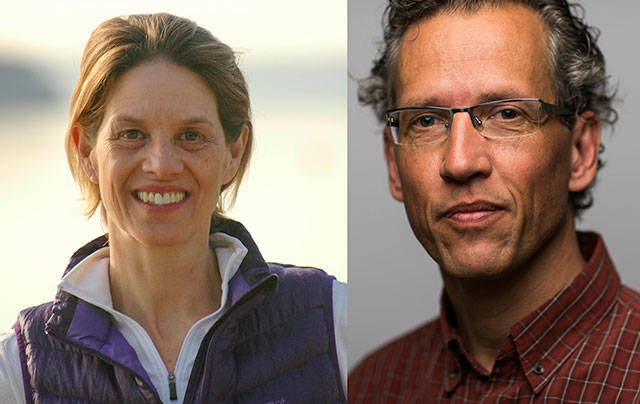We did not think we owned the land. The land was part of us. We didn’t even know about owning land. It is like talking about owning your grand-mother… Why would you talk about owning your grandmother?
— Lakota man born circa 1900
Last March, many people on Vashon came together to hear Winona LaDuke speak to a capacity audience at the Open Space. The event was in support of Honor the Earth and its opposition to Enbridge Corporations’ Line 3 pipeline expansion across northern Minnesota for delivery of Alberta tar sands crude. Since then, Minnesota’s Department of Commerce and an administrative law judge both rejected the Line 3 expansion. Unfortunately, Minnesota’s Public Utilities Commission voted this August to support it with justifications riddled with inconsistencies, omissions and biases favoring Enbridge. Going forward, La Duke and others are prioritizing a strong (and expensive) legal battle, with appeals currently pending. Simultaneously, they are preparing for a standoff along the pipeline construction route in early 2019, should legal appeals be denied.
Honor the Earth’s struggle against the Line 3 pipeline is a fight against property in defense of land.
The immediate assault is local. Sovereign treaty rights, sacred rice-bearing lakes and the rights of Minnesota’s fishing, hunting, farming and water-consuming communities all are being overridden in exchange for 20 permanent local jobs. The risks of pipeline leaks and environmental and social disruption are shared locally, communally. The benefits of property are shared by owners, foreign and exclusive.
The ultimate assault is global. Approval of Line 3 would underpin dirty tar sands extraction for decades to come. Given the growing availability of economically-viable, petroleum-free alternatives, support for Line 3 is unconscionable. Just this month, Trump’s executive order greenlighting the Keystone XL pipeline, designed to deliver tar sands oil to Gulf Coast refineries, was halted by a U.S. federal judge. The ruling stated the Trump administration “simply discarded” the project’s effect on climate change. Climate-based legal precedence is growing.
So why should Vashon support Winona LaDuke and Honor the Earth when we have our own land versus property battles here on the West Coast? Because every locally-defended bottleneck in the global petroleum network draws attention to the global reach of the entrenched petroleum economy, and LaDuke is a master at framing and amplifying the issues that are central to each of our parallel fights.
Oregon, Washington and British Columbia have all seen dramatic local victories at critical pinch points for moving oil, coal and gas to Asian markets. Over the last decade, permit applications were initiated for six Oregon and Washington port projects for export of Powder River coal to Asia. Each one has since failed, the last one rejected by the Washington Department of Ecology in September 2017. This year, a proposed train terminal on the Columbia River for North Dakota’s Bakken shale oil was rejected on environmental grounds, after an impressive and sustained groundswell of local activism.
Alberta tar sands oil exports to Asia would need to be funneled through the Salish Sea. This past August, the Canadian Federal Court of Appeals overturned the government’s approval of the Trans-Mountain pipeline expansion project because First Nations were not sufficiently consulted, nor were the adverse effects on marine wildlife of increased tanker traffic sufficiently considered.
The growing number of West Coast victories, driven by environmental rights and treaty rights as justifications for limiting expansion of corporate property rights, is coalescing into a cumulative success. Clearly feeling the pressure, President Trump recently suggested an alternative approach — using U.S. military bases on the West Coast as terminals for oil and gas export.
LaDuke is an extraordinarily effective speaker. Her message resonates with audiences from different perspectives and geographies. She embodies a pro-active, post-petroleum approach combining the “politics of no,” like the fight to stop Line 3, with the “politics of yes,” like efforts to further self-sufficiency and community cohesion through local solar energy and restorative farming initiatives.
LaDuke will return to Vashon on Feb. 9 for another speaking event and community fundraiser in support of the Line 3 struggle. In the meantime, to support the Water Protectors, we are collecting snow shoes, cross-country skis, winter camping equipment and warm outer clothing.
To drop off your donations on Vashon, contact drumdoc@icloud.com. For updates, please join our Facebook page, Vashon stands with Winona LaDuke and Honor the Earth.
When Vashon supports LaDuke, we support a surging sea change in global norms in support of socially and environmentally acceptable relationships between land and property.
— Ann Edwards is an islander and conservation biologist who has worked with natural resource-based communities in the U.S., Africa and Asia. Patrick Christie is a UW professor in marine policy and environmental sociology, an activist and Vashon resident.



